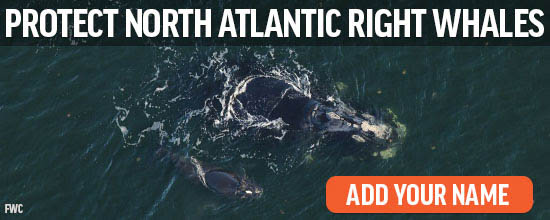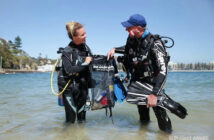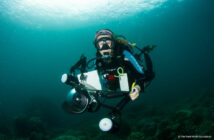Just as we were celebrating the birth of the fourth North Atlantic right whale calf seen this season, that calf has been struck by a vessel. The gruesome injuries are consistent with the propeller of a vessel and the cuts are so severe that experts believe it could have trouble feeding. The calf – seen above with its mother – is currently in critical condition.
This is a devastating tragedy for a species already on the edge of extinction. We’ve seen time and time again as ships collide with North Atlantic right whales, blunt force trauma and cuts from propellers can lead to excruciating deaths.
That’s why Oceana is calling on governments in Canada and the U.S. to take immediate action to stop the killing and save these whales from extinction. But, we can’t win this fight for whales without you. If you won’t speak up for North Atlantic right whales, who will?
In the past three years, 30 North Atlantic right whales have died in Canadian and U.S. waters – that’s nearly seven per cent of their population. Only around 400 remain. If we continue losing whales at this rate, extinction is inevitable.
Oceana is calling on the Canadian and U.S. governments to take immediate actions to save these whales from ship strikes and other stressors, including:
- Require ships to slow down where North Atlantic right whales are known to frequent.
- Reduce the amount of vertical lines from fishing gear in Canadian and U.S. Atlantic waters.
- Modify fishing gear and practices to reduce the likelihood and severity of entanglements.
Their survival depends on all of us standing together and making our voices heard. We can’t make a difference for these whales without your help.
We can’t afford to lose another whale, much less a precious newborn. If we don’t act fast, we could see a large whale species go extinct in the Atlantic Ocean for the first time in centuries.









